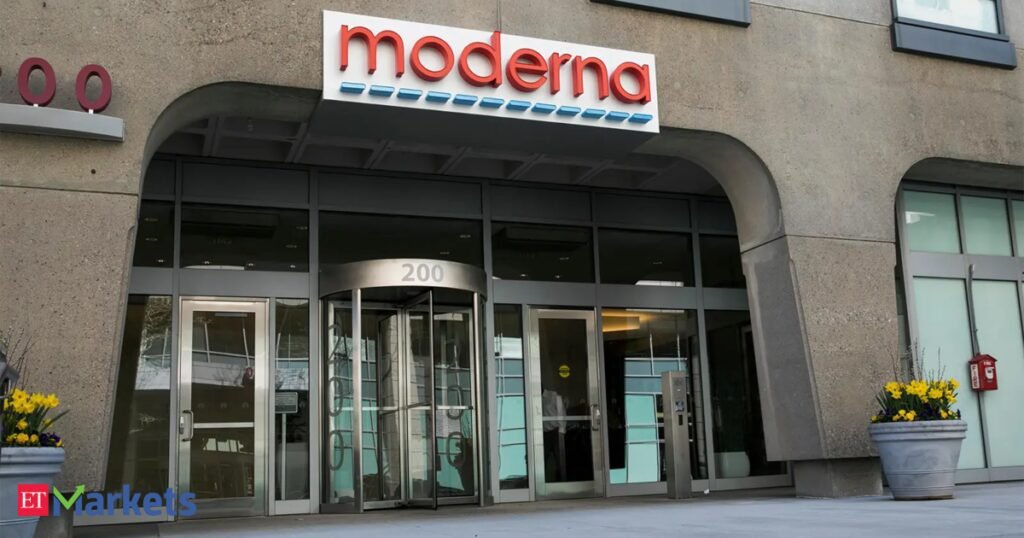Shares of the vaccine maker were down 17.1% to $65.88 at midday.
The company now sees sales of $2.5 billion to $3.5 billion in 2025, below analysts’ expectations of $3.74 billion, according to LSEG data. That midpoint was also below the $3 billion to $3.5 billion the company predicted for 2024.
The company, which has been struggling to pivot from its COVID-19 vaccine, said at an investors conference in New York that the regulatory process for influenza and cancer vaccines would take longer than the company had indicated.
Moderna now expects to have $6 billion in cash by the end of 2024, which was at the low end of the company’s previous forecast of $6 billion to $7 billion, according to Jefferies analyst Michael Yi.
The company’s cost cuts include a $1.1 billion reduction in research and development spending starting in 2026, most of which will take place in 2027. “I hope you understand why we’re so committed to the commercial challenge of launching all these products over the next three years, and that’s really starting to pick up pace,” Moderna President Stephen Hogue said. The company now expects to break even on an operating cash cost basis in 2028, two years later than its previous outlook. The forecast for next year reflects uncertainty in the U.S. COVID and respiratory syncytial virus (RSV) markets, Chief Financial Officer James Mock said in an interview. Moderna said adoption of its RSV vaccine has been slower than expected.
He also said the forecast reflects Moderna’s expectation that 10 new products expected to be approved by 2027 will each begin generating significant revenue the year after approval.
“In 2025, we expect some new product approvals, but we don’t expect significant revenue from them,” Mock said.
The company said new product launches will drive sales growth at an average annual rate of 25% between 2026 and 2028.
Moderna said it plans to apply to the FDA later this year to expand approval of its RSV vaccine to high-risk adults under the age of 60, based on new data from late-stage trials.
Regulators approved Moderna Inc’s mRESVIA vaccine in May last year to treat respiratory syncytial virus-related lower respiratory tract illness in adults aged 60 and over, putting it up against rival vaccines from GSK and Pfizer.
The company said it has withdrawn its request for accelerated approval as part of its FDA application for its standalone flu vaccine, and will instead focus on an application for a combination vaccine to protect against COVID-19 and influenza, which it plans to submit later this year.
Moderna said mRESVIA met all immune response targets and was found to be safe and well-tolerated in immune-compromised adults 18 and older, but did not provide details about the new study results.
Pfizer said in August that its Avrisvo vaccine, approved last year for adults 60 and older, produced a strong immune response in high-risk adults 18 and older.
In June, the FDA expanded use of GSK’s Alexi vaccine to adults ages 50 to 59. The US Centers for Disease Control and Prevention instead recommended RSV vaccination for all adults ages 75 and older, and for people ages 60 to 74 who have a medical condition that puts them at high risk for severe RSV infection.
Moderna said initial feedback from the FDA did not support accelerated approval, based on data from a mid-stage study of the cancer vaccine it developed with Merck & Co.




